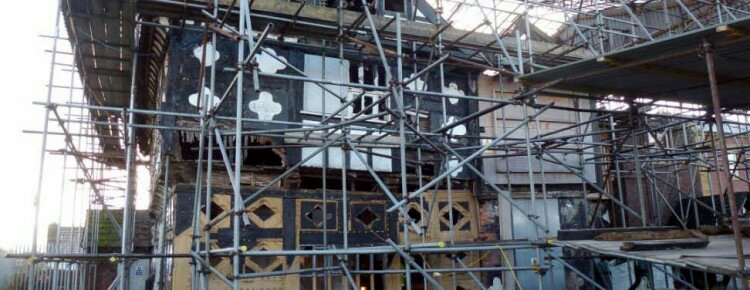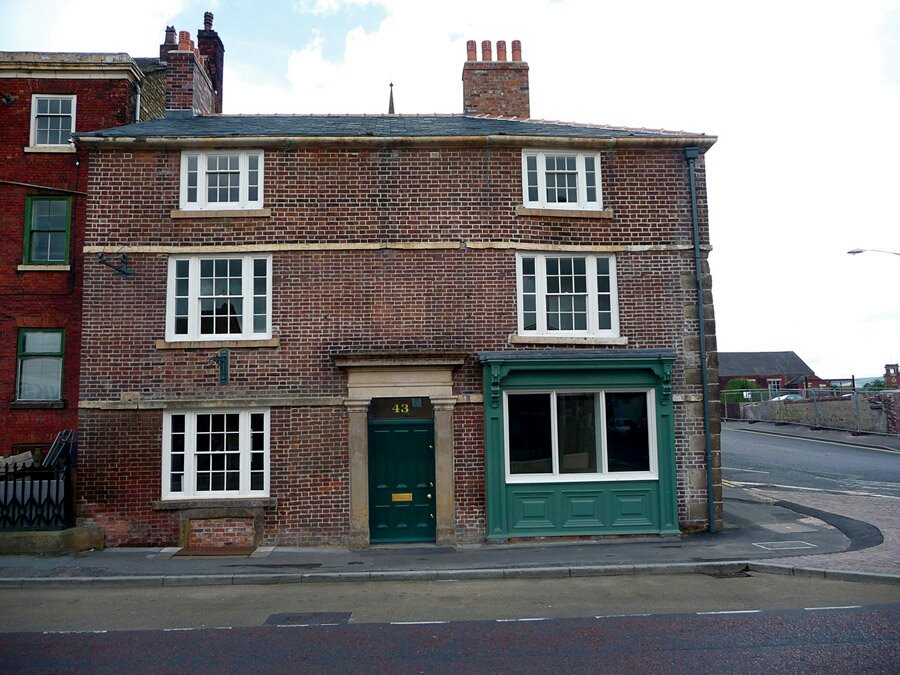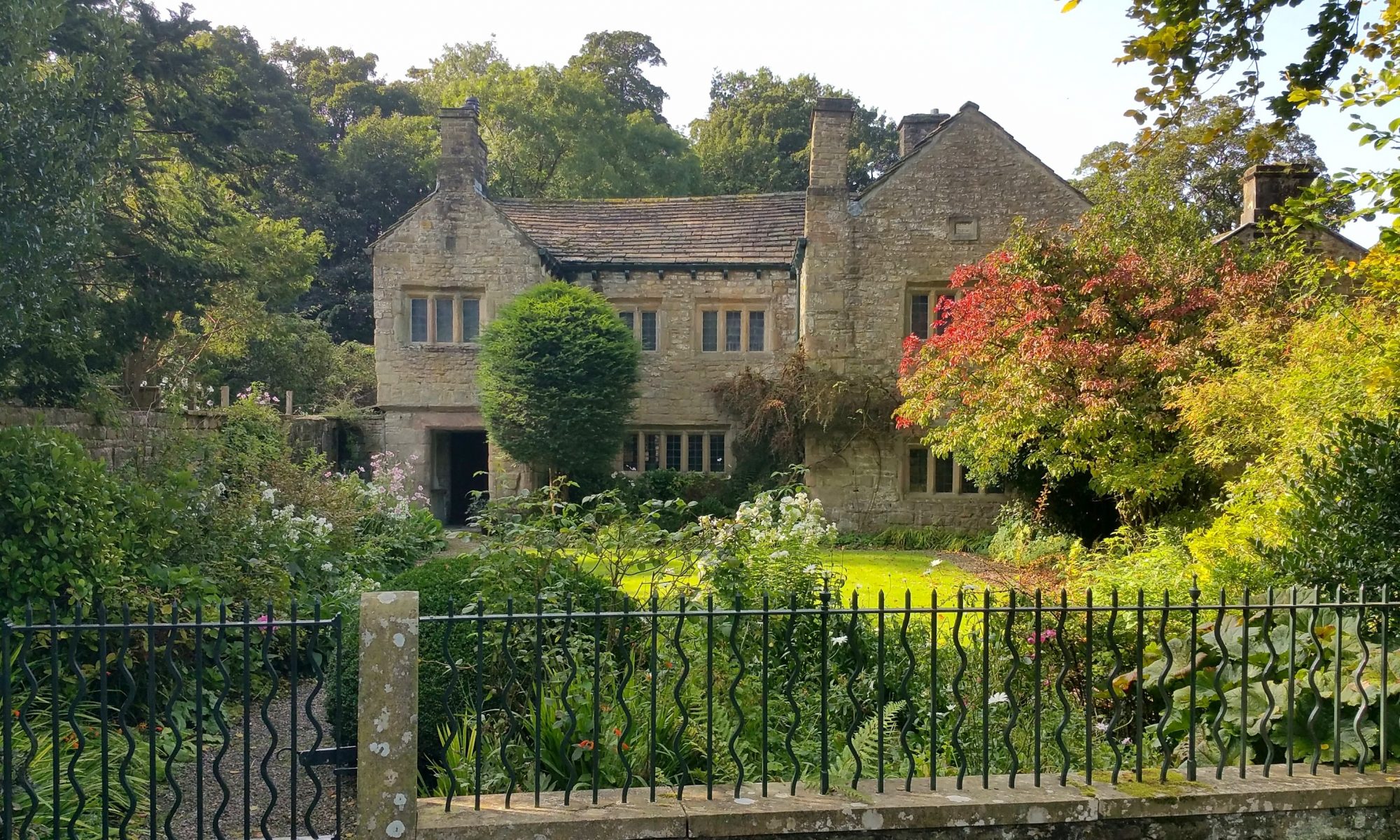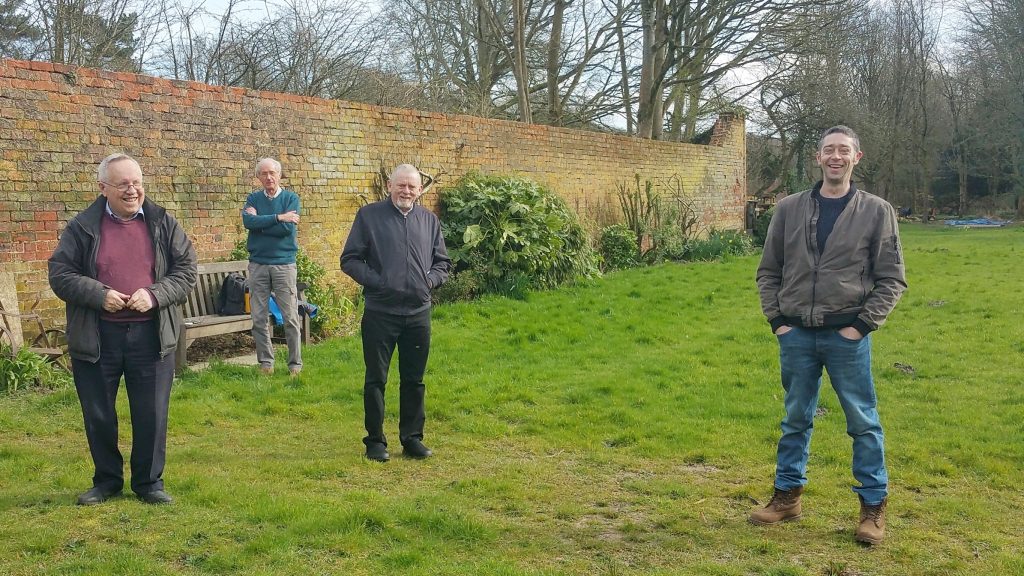Walking in Lancashire: 40 walks throughout the county including the Forest of Bowland and Ribble Valley by Mark Sutcliffe: companion for your year-round walks – book review – | Lancashire Evening Post
Blackburn’s King George’s Hall celebrates 100 years with Walls Have Ears exhibition – About Manchester
Unity Hall opening its doors with Selina Cooper exhibition | Burnley Express
Pendle pub landlord hit hard by pandemic to transform garage into holiday cottage – LancsLive
Row breaks out over Clitheroe’s historic wells left to ‘crumble’ – LancsLive
Ethel Carnie Holdsworth: campaigners push to revive fame of working-class novelist | Books | The Guardian
Canalside regeneration plan – Big Issue North
Leeds and Liverpool Canal: Art work shows how plans could look | Lancashire Telegraph
Festival Bowland remembers radicals and delves into Sawley Abbey’s history | Lancashire Evening Post
£280k Darwen Tower upgrade set to get the go-ahead | Lancashire Telegraph
Excellent news for these times. Blackburn with Darwen Council should be congratulated.
https://www.lancashiretelegraph.co.uk/news/19019204.280k-darwen-tower-upgrade-set-get-go-ahead/
Heritage Trust for the North West receives lifeline grant from Government’s £1.57bn Culture Recovery Fund
- Almost 450 heritage organisations in England, including Pendle Heritage Centre and Lytham Hall, have been awarded cash from the first round of the Culture Recovery Fund for Heritage
- Grants of up to £1 million will deliver a lifeline for the heritage sector in England with further support to follow and larger grants for capital projects awarded through the Heritage Stimulus Fund
- First major tranche of funding from the Government’s £1.57 billion Culture Recovery Fund
Heritage Trust for the North West is one of 445 heritage organisations across the country set to receive a lifesaving financial boost from the government thanks to the £1.57 billion Culture Recovery Fund to help them through the coronavirus pandemic.
445 organisations will share £103 million, including Heritage Trust for the North West to help restart vital reconstruction work and maintenance on cherished heritage sites, keeping venues open and supporting those working in the sector.
This vital funding is from the Culture Recovery Fund for Heritage and the Heritage Stimulus Fund – funded by Government and administered at arms length by Historic England and the National Lottery Heritage Fund. Both funds are part of the Government’s £1.57 billion Culture Recovery Fund which is designed to secure the future of Britain’s museums, galleries, theatres, independent cinemas, heritage sites and music venues with emergency grants and loans.
433 organisations will receive a share of £67 million from the Culture Recovery Fund for Heritage to help with costs for operating, reopening and recovery. This includes famous heritage sites across the country, from Wentworth Woodhouse in Yorkshire to Blackpool’s Winter Gardens, Blyth Tall Ship to the Severn Valley Railway, the International Bomber Command Centre in Lincolnshire to the Piecehall in Halifax. The funds will save sites that are a source of pride for communities across the country.
12 organisations, including English Heritage, Landmark Trust, Historic Royal Palaces and the Canal and River Trust, will receive £34 million from the Heritage Stimulus Fund to restart construction and maintenance on cherished heritage sites to preserve visitor attractions and protect livelihoods for some of the most vulnerable heritage specialists and contractors in the sector.
The Architectural Heritage Fund (AHF) has also been awarded a grant from the Culture Recovery Fund through Historic England. The AHF will use the funding to support charities and social enterprises occupying historic buildings to develop new business plans and strategies for organisations affected by the pandemic.
Culture Secretary Oliver Dowden said:
“As a nation it is essential that we preserve our heritage and celebrate and learn from our past. This massive support package will protect our shared heritage for future generations, save jobs and help us prepare for a cultural bounceback post covid.”
Lucy Worsley, Chief Curator, Historic Royal Palaces, said:
“There’s no truer way to experience the past than to walk in the footsteps of those who have lived it – that’s why preserving our built heritage is so important.
“At Historic Royal Palaces, we care for six nationally significant buildings, opening them to the public and preserving them for future generations. Sadly, the pandemic meant that we had to stop some of our critical conservation work. The grant we have received from the Culture Recovery Fund will enable to this work to resume – so we can give some of Britain’s most historic buildings the care and attention they deserve, while supporting the specialist craftspeople who are vital for the future of our national heritage. We are enormously grateful to the Government for this support.”
John Miller of Heritage Trust for the North West said:
“Everyone has worked their socks off keeping the Trust’s historic buildings and collections going during this awful Pandemic. We are especially grateful to our staff who have shown great fortitude and initiative and to our volunteers who have continued to make their special contributions despite the circumstances. We are overjoyed with our successful grant application and will put these monies to good use over the winter to respond better the changing circumstances.”
Duncan Wilson, Historic England’s Chief Executive said:
“It is heartening to see grants, both large and small, from the Government’s Culture Recovery Fund helping heritage sites and organisations across the country which have been hit hard by the effects of Covid-19. These grants range from giving skilled craft workers the chance to keep their trades alive to helping heritage organisations pay the bills, and to kick-starting repair works at our best-loved historic sites. The funding is an essential lifeline for our heritage and the people who work tirelessly to conserve it for us all, so that we can hand it on to future generations.”
Ros Kerslake, Chief Executive of the National Lottery Heritage Fund said:
“It is absolutely right that investing in heritage should be a priority during this crisis and this support by Government is crucial. Heritage creates jobs and economic prosperity, is a major driver for tourism and makes our towns, cities, and rural areas better places to live. All of this is so important for our wellbeing and will be particularly vital when we start to emerge from this incredibly difficult time.
“Our heritage is still facing a perilous future – we are not out of the woods yet. But this hugely welcome funding from Government, and the money we continue to invest from the National Lottery, has undoubtedly stopped heritage and the organisations that care for it being permanently lost.”
Kate Mavor, Chief Executive of English Heritage, said:
“This support for our nation’s heritage is fantastic news. Over the last few months, our teams have been working hard to welcome visitors back safely to the great castles, stone circles, abbeys and historic houses in our care. This funding will help us invest to safeguard the historic fabric of these much-loved places, which everyone can learn from and enjoy.”
Hundreds of historic English sites to share £103m in Covid rescue funds
Austin Grady Retires from Conservation Services North West
Photograph: John Miller (Director HTNW), Peter Taylor (Friends of Bank Hall, Chorley), Austin Grady and David Parfitt (CSNW).
Austin Grady, who has headed up Conservation Services North West (CSNW) for the last ten years, has finally decided the attractions of retirement can no longer be ignored!
Austin has led several important conservation projects in his time at CSNW, including the heroic saving of Tonge Hall, Middleton (listed grade II*) after a devastating fire which left it in a critically unstable condition.

Working alongside surveyor Alan Gardner, and operating from a cherry picker, Austin skillfully deconstructed the tangled and dangerous mess of the half-collapsed timber frame hall. He carefully logged and stored the constituent parts before carrying out exemplary carpentry repairs to the main structure, leaving the stabilized building protected by a scaffold cage.
Other notable projects include the restoration of the derelict former King’s Head PH, Blackburn (grade II listed), another building on the point of collapse, and the repair and conservation of Lomeshaye Bridge Mill in Whitefield Conservation Area, Nelson, Bank Hall, Bretherton (listed grade II*) and Lytham Hall (listed grade I).
Conservation Services NW, which is the building arm of Heritage Trust for the North West, will greatly miss Austin’s conservation skills, commitment and all round professionalism. We wish him a great retirement!



